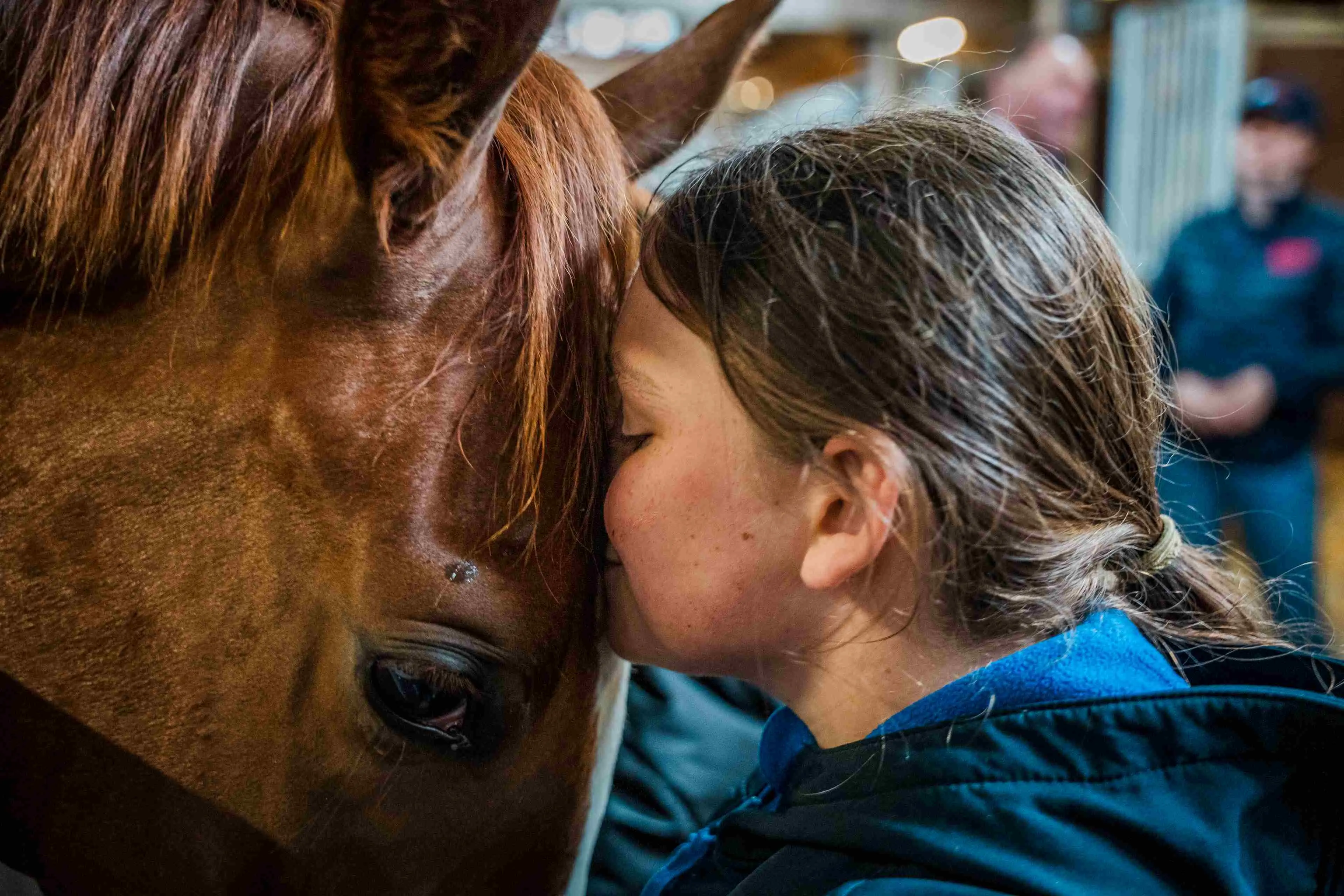HOW FORMER RACEHORSES ARE HELPING HEAL HEARTS AND MINDS
The growing popularity of equine therapy and promising evidence for its effectiveness is offering a new unique pathway for former racehorses transitioning into non-ridden second careers.

Nestled in the remote town of Aboyne, an hour’s drive from Aberdeen, lies HorseBack UK. It’s a remote and idyllic part of the country, synonymous with spectacular scenery and outdoor sports enthusiasts.
HorseBack is one of many charities and healthcare providers now embracing equine-assisted therapy and services, incorporating horsemanship and interaction with horses as part of a therapeutic process for those suffering from physical or mental illness.
For Britain’s former racehorses, the growing popularity of equine therapy and promising evidence for its effectiveness, offers a new unique pathway for those transitioning into non-ridden second careers.
The soldier whose life was saved by racehorses
At HorseBack UK, six former racehorses live amongst the herd enjoying a quiet pace of life. For veterans, the mainstay of HorseBack’s clientele, the horses represent the journey they are about to undertake re-entering civilian life. Also highly-trained, attuned and used to a life of strict routine, the former racehorses embody the possibility of a second purpose or career. Activities to promote bonding with the horses, and horsemanship, are transforming lives, including that of Bobby Jones.
Pastures new
Around 4,500 foals are born in Britain each year with the intention of racing. Most of these foals (69%) enter licensed training by the age of six, with others bypassing a racing career entirely and re-entering the Thoroughbred breeding sector to create the next generation of superstar athletes.
But for most Thoroughbreds, a life well beyond racing is inevitable. British racing understands its responsibility to these horses across their lives, before, during and after their racing days. With collective lifetime responsibility a key outcome of the sport’s ‘A Life Well Lived’ welfare strategy, a multitude of projects are underway to better understand the lives that former racehorses go on to lead, and how the sport can support them in making this transition.
Uniquely bred, infinitely versatile
While horses of all breeds are used in equine assisted services to great success, Thoroughbreds (in Britain, all racehorses must be registered Thoroughbreds) are building a growing reputation for possessing the ideal qualities and attributes for this kind of work.
Racing To Relate, in partnership with the University of Bristol’s Veterinary School, is a major research study seeking to better understand the unique qualities that make the Thoroughbred suitable for this type of work. In time, it hopes to create a pathway and allow more horses to find a meaningful career in the field after they retire from racing.
The first stage of research gathered vital information about Thoroughbreds already active in these roles. Respondents noted a racehorse’s sensitivity, body/movement characteristics or responsiveness/flight response, as well as an overall adaptability and work ethic.
“The best therapists you could get”
Many providers, like HorseBack UK, are already taking advantage of ex-racers within their equine therapy teams.
Greatwood Charity, based in Wiltshire, was the first charity to use former racehorses to educate disadvantaged children and young adults with Special Educational Needs (SEN). It now has 35 Thoroughbreds on site, providing multiple educational routes across primary, secondary and adult education alongside bespoke services to the community.
In Oxfordshire, the award-winning HEROS, combine a focus on retraining and rehoming former racehorses with creating opportunities and education programmes for those aged 11-16. Find out about how HEROS is harnessing the power of the racehorse to transform the lives of young people in our video below.
Supporting the transition
British racing understands its responsibility to ensure that racehorses go on to lead the best lives possible. Alongside the growing demand for former racehorses in equine therapy, every year horses leave racing for pastures new, from showjumping, dressage, eventing, polo, or simply recreational riding. Retraining of Racehorses (RoR), the sport’s official aftercare partner, provide invaluable free education and support for their owners, as well as a thriving competitive scene and community. This support is open to all owners of the estimated 33,600 former racehorses in Britain.
To find out more about the lives that former racehorses lead, read the findings of the sport’s 2023 Thoroughbred Census or visit Retraining of Racehorses (RoR) at ror.org.uk.